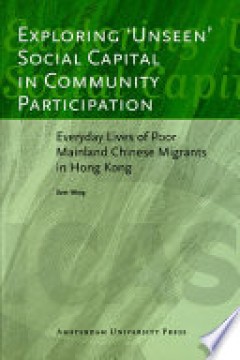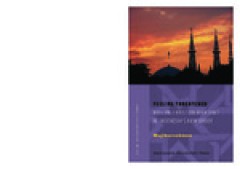Filter by

Exploring 'Unseen' Social Capital in Community Participation : Everyday Lives…
This book argues that using social capital to eradicate poverty is less likely to succeed because the mainstream neoinstitutional approach mistakenly assumes that social capital necessarily benefits poor people. This inadequacy calls for a re-assessment of human motivations, institutional dynamics and structural complexity in social capital building. Using ethnographic and participatory methods…
- Edition
- -
- ISBN/ISSN
- 9789053560341
- Collation
- 220p
- Series Title
- -
- Call Number
- 306.095125 WON

Feeling Threatened : Muslim-Christian Relations in Indonesia's New Order
Muslim-Christian relations were an important element of the social and political dynamics of Indonesia and an ever-sensitive subject of government policy during the New Order period (1966-1998). Tense relations and mutual suspicions between Indonesia's Muslim majority and its significant Christian minority were reflected in Christian fear of Muslim efforts to turn the country into an Islamic st…
- Edition
- -
- ISBN/ISSN
- 9789053569382
- Collation
- 428. : ill
- Series Title
- 9789053569382
- Call Number
- 261.27 MUJ f
 Computer Science, Information & General Works
Computer Science, Information & General Works  Philosophy & Psychology
Philosophy & Psychology  Religion
Religion  Social Sciences
Social Sciences  Language
Language  Pure Science
Pure Science  Applied Sciences
Applied Sciences  Art & Recreation
Art & Recreation  Literature
Literature  History & Geography
History & Geography